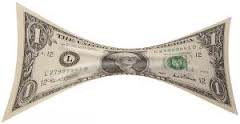Millions of Americans are struggling financially. Despite improvement in the economy, many are still living paycheck-to-paycheck, and that paycheck doesn’t go very far. Before you cancel your cable service or have a yard sale, consider some of the following tips on starting to live frugally and get the most out of every penny you’ve earned.
How to Tips on Starting to Live Frugally and Save Money
 When it comes time to by a car, consider buying it used. There might be a lot of enticing offers available on new cars, but that may mean a bigger car payment that you just can’t afford. A used car is always cheaper, and will also be cheaper to insure as well. Many used cars are still in excellent condition and will last you many years. Do your research online to find a trustworthy dealership, as well as things to look for while car shopping. If you can, save up the money for a car first. Many banks let you open a savings account for free or with a deposit of only a few dollars.
When it comes time to by a car, consider buying it used. There might be a lot of enticing offers available on new cars, but that may mean a bigger car payment that you just can’t afford. A used car is always cheaper, and will also be cheaper to insure as well. Many used cars are still in excellent condition and will last you many years. Do your research online to find a trustworthy dealership, as well as things to look for while car shopping. If you can, save up the money for a car first. Many banks let you open a savings account for free or with a deposit of only a few dollars.
Anyone familiar with living frugal knows you should never throw out the coupon inserts that come with your Sunday paper. Savvy couponers use them to get items for mere pennies, or even free in some cases. To make the most of your coupons, take note of which store near you has the best prices. Then, review that store’s coupon policy. Some stores may let you double a coupon’s value, which means even more savings! Watch for when an item you need goes on sale, and buy it with a coupon even if you don’t need it right away. Coupons can let you stock up at low prices, meaning you’ll pay a fraction of the item’s usual cost. You’ll also save on gas by not having to make an extra trip to the store for one or two items that may not be on sale and that you may not have a coupon for.
You can save at the store in other ways besides using coupons. If high gas prices are gobbling up your paycheck, shop at a store that rewards you in gas discounts. More grocery stores are including gas stations, and offering lower prices per gallon based on how much you spent at the store.
Smartphones, tablets and e-readers might be all the rage, but they’re just one of many items that you’ll keep paying for over time. Smartphones usually require data plans, and additional fees for apps and internet use. If you already have a computer with internet access at home, you won’t need all the same features on your phone as well. Trim down your cell phone plan to what you really need, or ask your provider for special offers on calling plans.
Does your bank charge you fees to use your debit card, or if your balance is too low? You may think a dollar (or more) here or there isn’t bad, but it can add up quickly over the course of a month. Switch to a bank that doesn’t charge you fees, and keep more of your hard-earned money.
You can save money at home, too, by make changes to reduce your utility costs. Ask about budget plans that let you pay one flat rate each month, calculated from your usual usage. To reduce your energy consumption, switch to compact fluorescent light bulbs, and rely on natural daylight during the day. If it’s time to replace any of your appliances, look for ones that are rated for more energy efficient use. Unplug small appliances and electronics when not in use. Install a low-flow shower head and skip your showers on occasion to lower the water bill. Only run your dishwasher, washer and dryer when they’re full.
Buying “out of season” can help you save money. Look for sales on winter clothing and accessories when the spring line comes out. Look for after-Christmas sales on items that didn’t sell as well during the holiday rush. If you have a sweet tooth, look for Halloween, Easter, and Valentine’s Day candy on sale when the holidays are over.
Live frugally can make the all the difference between surviving and thriving in a struggling economy. If you stick to your plan, you’ll see your savings add up and see your paycheck go much further than you expected.
